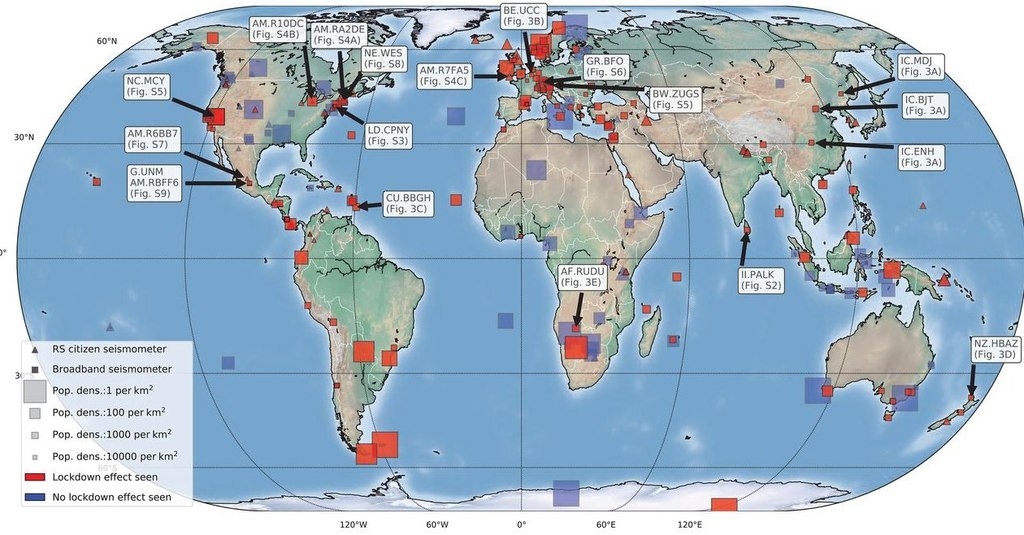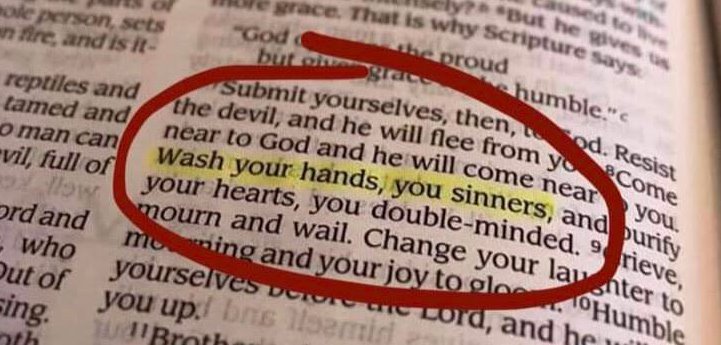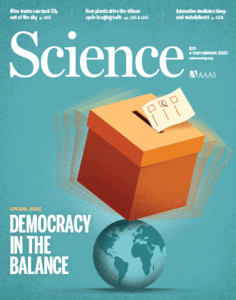Note that Readings for Sundays in ordinary time ([1] to [37]) are aligned with the date rather than the number of Sundays after Epiphany or Pentecost.
ADVENT
First Sunday of Advent, 27 Nov 22 — Isaiah 2.1-5; Psalm 122; Romans 13.9-14; Matthew 24.36-44.
Second Sunday of Advent, 4 Dec 22 — Isaiah 11.1-10; Psalm 72.1-7, 18-21; Romans 15.4-13; Matthew 3.1-12.
Third Sunday of Advent, 11 Dec 22 — Isaiah 35.1-10; Song of Mary (APBA, p. 31) or Psalm 146; James 5.7-10; Matthew 11.2-11.
Fourth Sunday of Advent, 18 Dec 22 — Isaiah 7.10-16; Psalm 80.1-7, 17-19; Romans 1.1-7; Matthew 1.18-25.
CHRISTMAS
Christmas Eve, Sat 24 Dec 22 — Isaiah 9.2-7; Psalm 96; Titus 2.11-14; Luke 2.1-14 (15-20).
Christmas Day, 25 Dec 22 — Isaiah 52.7-10; Psalm 98; Hebrews 1.1-4(5-12); John 1.1-14.
First Sunday after Christmas, 1 Jan 23 — Isaiah 63.7-9; Psalm 148; Hebrews 2.10-18; Matthew 2.13-23.
Second Sunday after Christmas, (Omitted this year) — Jeremiah 31.7-14; Psalm 147.12-20; Ephesians 1.3-14; John 1.(1-9) 10-18.
Naming and Circumcision of Jesus, Sat 1 Jan 22 — Numbers 6.22-27; Psalm 8; Galatians; Luke 2.15-21
EPIPHANY
The Epiphany of Our Lord, Fri 6 Jan 23 — Isaiah 60.1-6; Psalm 72.1-7, 10-14; Ephesians 3.1-12; Matthew 2.1-12.
Baptism of The Lord (First Sunday after the Epiphany), 8 Jan 23 [1] Week of 7 to 13 Jan — Isaiah 42.1-9; Psalm 29; Acts 10.34-43; Matthew 3.13-17.
Second Sunday after the Epiphany, 15 Jan 23 [2] Week of 14 to 20 Jan — Isaiah 49.1-7; Psalm 40.1-11; 1 Corinthians 1.1-9; John 1.29-42.
Third Sunday after the Epiphany, 22 Jan 23 [3] Week of 21 to 27 Jan — Isaiah 9.1-4; Psalm 27.1-10; 1 Corinthians 1.10-18; Matthew 4.12-25.
Fourth Sunday after the Epiphany, 29 Jan 23 [4] Week of 28 Jan to 3 Feb — Micah 6.1-8; Psalm 15; 1 Corinthians 1.18-31; Matthew 5.1-12.
The Presentation of Christ in the Temple (Candlemas), Thu 2 Feb 23 — Malachi 3.1-4; Psalm 24 or Psalm 84; Hebrews 2.14-18; Luke 2.22-40
Fifth Sunday after the Epiphany, 5 Feb 23 [5] Week of 4 to 10 Feb — Isaiah 58.1-9a (9b-12); Psalm 112.1-9 (10); 1 Corinthians 2.1-13 (14-16); Matthew 5.13-20.
Sixth Sunday after the Epiphany, 12 Feb 23 [6] Week of 11 to 17 Feb — Deuteronomy 10.12-22; Psalm 119.1-8; 1 Corinthians 3.1-9; Matthew 5.21-37.
Seventh Sunday after the Epiphany, (Omitted this year) [7] Week of 18 to 24 Feb — Leviticus 19.1-2, 9-18; Psalm 119.33-40; 1 Corinthians 3.10-17; Matthew 5.38-48.
(Omitted this year) [8] Week of 25 to 29 Feb or 24 to 28 May — Isaiah 49.8-16a; Psalm 131; 1 Corinthians 3.18-4.5; Matthew 6.22-34.
Last Sunday after the Epiphany / Transfiguration, 19 Feb 23 — Exodus 24.12-18; Psalm 2; 2 Peter 1.16-21; Matthew 17.1-9.
LENT
Ash Wednesday, Wed 22 Feb 23 — Joel 2.1-2, 12-17 or Isaiah 58.1-12; Psalm 51.1-17; 2 Corinthians 5.20b-6.10; Matthew 6.1-6 (7-15) 16-21.
First Sunday in Lent, 26 Feb 23 — Genesis 2.15-17; 3.1-7; Psalm 32; Romans 5.12-21; Matthew 4.1-11.
Second Sunday in Lent, 5 Mar 23 — Genesis 12.1-4a; Psalm 121; Romans 4.1-5 (6-12) 13-17; John 3.1-17 or Matthew 17.1-9.
Third Sunday in Lent, 12 Mar 23 — Exodus 17.1-7; Psalm 95; Romans 5.1-11; John 4.5-42.
Fourth Sunday in Lent, 19 Mar 23 — 1 Samuel 16.1-13; Psalm 23; Ephesians 5.8-14; John 9.1-41.
The Annunciation, Sat 25 Mar 23 — Isaiah 7.10-14; Psalm 40.6-13; Hebrews 10.4-10; Luke 1.26-38
Fifth Sunday in Lent, 26 Mar 23 — Ezekiel 37.1-14; Psalm 130; Romans 8.6-11; John 11.1-45.
Palm Sunday or Passion Sunday, 2 Apr 23 — Matthew.21.1-11; Psalm 118.1-2, 19-29; Liturgy of the Passion; Isaiah 50.4-9a; Psalm 31.9-16; Philippians 2.5-11; Matthew 26.1-27.6 or Matthew 27.11-54.
Maundy Thursday, Thu 6 Apr 23 — Exodus 12.1-4 (5-10) 11-14; Psalm 116.1-2, 12-19; 1 Corinthians 11.23-26; John 13.1-17, 31b-35.
Good Friday, Fri 7 Apr 23 — Isaiah 52.13-53.12; Psalm 22; 1 Corinthians 1.18-31 or Hebrews 10.16-25; John 18.1-19.42.
Holy Saturday, Sat 8 Apr 23 — Job 14.1-14; Psalm 31.1-8; 1 Peter 4.1-11; Matthew 27.57-66.
EASTER
Easter Day, 9 Apr 23 — Acts 10.34-43 or Jeremiah 31.1-6; Psalm 118.1-2, 14-24 or Hymn to the Risen Christ; Colossians 3.1-4; Matthew 28.1-10.
Second Sunday of Easter, 16 Apr 23 — Acts 2.14a,22-32; Psalm 16; 1 Peter 1.1-12; John 20.19-31.
Third Sunday of Easter, 23 Apr 23 — Acts 2.14a,36-41; Psalm 116.1-4,11-18; 1 Peter 1.13-25; Matthew 28.8-15a or Luke 24.13-35.
Fourth Sunday of Easter, 30 Apr 23 — Acts 2.42-47; Psalm 23; 1 Peter 2.1-10; John 10.1-10.
St Philip and St James, Mon 1 May 23 (celebrated 7 May 23) — Isaiah 30.18-21; Psalm 19.1-6; 1 Corinthians 15.1-8; John 14.6-14
(Omitted this year) Fifth Sunday of Easter, 7 May 23 — Acts 7.55-60; Psalm 31.1-5, 17-18; 1 Peter 2.11-25; John 14.1-14.
Sixth Sunday of Easter, 14 May 23 — Acts 17.22-31; Psalm 66.7-19; 1 Peter 3.8-22; John 14.15-21.
Ascension Day, 14 May 23 — Acts 1.1-11; Psalm 47; Ephesians 1.15-23; Matthew 28.16-20.
Seventh Sunday of Easter, 21 May 23 — Acts 1.6-14; Psalm 68.1-10,32-35; 1 Peter 5; John 17.1-11.
PENTECOST
Day of Pentecost, 28 May 23 — Acts 2.1-21 or Numbers 11.24-30; Psalm 104.26-36; 1 Corinthians 12.1-13 or Acts 2.1-21; John 20.19-23 or John 7.37-52.
Trinity Sunday, 4 Jun 23 — Exodus 34.1-8; Song of the Three Young Men APBA p. 399; 2 Corinthians 13.11-13; Matthew 28.16-20.
Corpus Christi, Thu 8 Jun 23 — Exodus 24.3-8; Psalm 116; 1 Corinthians 10.14-21; Mark 14.12-16, 22-26.
(Omitted this year) [9] Week of Sunday, 29 May to 4 June — Genesis 6.9-22,7.24; Psalm 46; Romans 1.16-17,3.21-31; Matthew 7.15-29 [Deuteronony 11.1-21, 26-28; Psalm 31.1-5, 21-27]
Second Sunday after Pentecost, 11 June 23, [10] Week of Sunday, 5 to 11 June — Genesis 12.1-9; Psalm 33.1-12; Romans 4.13-25; Matthew 9.9-13,18-26 [Hosea 5.15-6.6; Psalm 50.7-15]
Third Sunday after Pentecost, [11] Week of Sunday, 12 to 18 Jun — Genesis 18.1-15; Psalm 116.1-2,11-18; Romans 5.1-11; Matthew 9.35-10.8 [Exodus 19.2-8a; Psalm 100]
Fourth Sunday after Pentecost, 25 Jun 23 [12] Week of Sunday, 19 to 25 Jun — Genesis 21.8-21; Psalm 86.1-10,16-17; Romans 6.1-11; Matthew 10.29-39 [Jeremiah 20.7-13; Psalm 69.7-19]
Fifth Sunday after Pentecost, 2 Jul 23 [13] Week of Sunday, 26 Jun to 2 Jul — Genesis 22.1-14; Psalm 13; Romans 6.12-23; Matthew 10.40-42 [Jeremiah 28.5-9; Psalm 89.1-4,15-18]
Sixth Sunday after Pentecost, 9 Jul 23 [14] Week of Sunday, 3 to 9 Jul — Genesis 24.34-38, 42-49, 58-67; Psalm 45.10-17; Romans7.14-25; Mathhew 11.15-19 (20-24) 25-30 [Zechariah 9.9-12; Psalm 145.8-14]
Seventh Sunday after Pentecost, 16 Jul 23 [15] Week of Sunday, 10 to 16 Jul — Genesis 25.19-34; Psalm 119.105-112; Romans 8.1-11; Matthew 13.1-9 (10-17) 18-23 [Isaiah 55.10-13; Psalm 65.(1-8) 9-13]
Eighth Sunday after Pentecost, 23 Jul 23 [16] Week of Sunday, 17 to 23 Jul — Genesis 28.10-19a; Psalm 139.1-11, 23-24; Romans 8.12-25; Matthew 13.24-30 (31-35) 36-43 [Isaiah 44.6-8; Psalm 86.11-17]
Ninth Sunday after Pentecost, 30 Jul 23 [17] Week of Sunday, 24 to 30 Jul — Genesis 29.15-28; Psalm 105.1-11; or 128; Romans 8.26-39;; Matthew 13.44-58 [1 Kings 3.5-12; and Psalm 119.129-136]
Tenth Sunday after Pentecost, 6 Aug 23 [18] Week of Sunday, 31 Jul to 6 Aug — Genesis 32.22-31; Psalm 145.8-9, 14-21; Romans 9.1-8 (9-16); Matthew 14.13-21 [Isaiah 55.1-5; Psalm 145.8-9, 14-21]
Eleventh Sunday after Pentecost, 13 Aug 23 [19] Week of Sunday, 7 to 13 Aug — Genesis 37.1-4, 12-28; Psalm 105.1-6, 16-22; Romans 10.4-15; Matthew 14.22-36 [1 Kings 19.9-18; Psalm 85.8-13]
Mary, Mother of Our Lord, Tue 15 Aug 23 — isaiah 61.1.62.3-; Luke 1.47-55 or Psalm 113.-; Galatians 4.4-7; Luke 2.1-7
Twelth Sunday after Pentecost, 20 Aug 23 [20] Week of Sunday, 14 to 20 Aug — Genesis 45.1-15; Psalm 133; Romans 11.13-32 (33-36); Matthew 15. (10-20) 21-28 [Isaiah 56.1, 6-8; Psalm 67]
Thirteenth Sunday after Pentecost, 27 Aug 23 [21] Week of Sunday, 21 to 27 Aug — Exodus 1.8-2.10; Psalm 124; Romans 12.1-8; Matthew 16.13-20 [Isaiah 51.1-6; Psalm 138]
Fourteenth Sunday after Pentecost, 3 Sep 23 [22] Week of Sunday, 28 Aug to 3 Sep — Exodus 3.1-15; Psalm 105.1-6, 23-26; Romans 12.9-21; Matthew 16.21-28 [Jeremiah 15.15-21; Psalm 26.1-8]
Fifteenth Sunday after Pentecost, 10 Sep 23 [23] Week of Sunday, 4 Sep to 10 Sep — Exodus 33.7-11; Psalm 149; Romans 13.1-10; Matthew 18.10-20 [Ezekiel 33.7-11; Psalm 119.33-40]
Sixteenth Sunday after Pentecost, 17 Sep 23 [24] Week of Sunday, 11 to 17 Sep — Exodus 14.19-31; Psalm 114; Romans 14.1-14; ; Matthew 18.21-35 [Exodus 15.1-13, 17-18; Genesis 50.15-21; and Psalm 103.(1-7) 8-13;]
Seventeenth Sunday after Pentecost, 24 Sep 23 [25] Week of Sunday, 18 to 24 Sep — Exodus 16.2-15; Psalm 105.1-6, 37-45; Philippians 1; 1.21-30;; Matthew 20.1-16 [Jonah 3.10-4.11; Psalm 145.1-8]
Eighteenth Sunday after Pentecost, 1 Oct 23 [26] Week of Sunday, 25 Sep to 1 Oct — Exodus 17.1-7; Psalm 78.1-4,11-16; Philippians 2; or Philippians 2.1-13; ; Matthew 21.23-32 [Ezekiel 18.1-4,25-32; Psalm 25.1-9]
Nineteenth Sunday after Pentecost, 8 Oct 23 [27] Week of Sunday, 2 to 8 Oct — Exodus 20.1-4, 7-9, 12-20; Psalm 19; Philippians 3; or Philippians 3.4b-14; ; Matthew 21.33-46 [Isaiah 5.1-7; Psalm 80.7-15]
Twentieth Sunday after Pentecost, 8 Oct 23 [28] Week of Sunday, 9 to 15 Oct — Exodus 32.1-14; Psalm 106.1-6, 20-24; Philippians 4; or Philippians 4.1-9; ; Matthew 22.1-14 [Isaiah 25.1-9; Psalm 23]
Twenty-first Sunday after Pentecost, 22 Oct 23 [29] Week of Sunday, 16 to 22 Oct — Exodus 33.12-23; Psalm 99; 1 Thessalonians 1.1-10; Matthew 22.15-33 [Isaiah 45.1-7; Psalm 96.1-9 (10-13)]
Twenty-second Sunday after Pentecost, 29 Oct 23 [30] Week of Sunday, 23 to 29 Oct — Deuteronomy 34.1-12; Psalm 90.1-6,13-17; 1 Thessalonians 2.1-13; Matthew 22.34-46 [Leviticus 19.1-2, 15-18; Psalm 1]
All Saints, 5 Nov 23 — Revelation 7.9-17; Psalm 34.1-10, 22; 1 John 3.1-3; Matthew 5.1-12.
(Omitted this year) [31] Week of Sunday, 30 Oct to 5 Nov — Job 42.1-6, 10-17; Psalm 107.1-7; 33-37; 1 Thessalonians 3. 5-13; or 1 Thessalonians 4.1-8; Matthew 23. 1-12 (37-39) [Micah 3.5-12; Psalm 43]
Twenty-fourth Sunday after Pentecost, 12 Nov 23 [32] Week of Sunday, 6 to 12 Nov — Joshua 23.1-3a, 14-25; Psalm 78.1-7; 1 Thessalonians 4.9-18; Matthew 25.1-13 [Amos 5.18-24; Psalm 70]
Twenty-fifth Sunday after Pentecost, 19 Nov 23 [33[Week of Sunday, 13 to 19 Nov — Judges 4.1-10; Psalm 123; 1 Thessalonians 5.1-11; Matthew 25.14-13 [Zephaniah 1.7, 12-18; Psalm 90.1-8 (9-11) 12]
Christ the King / Reign of Christ Sunday after Pentecost, 26 Nov 23 [34] Week of Sunday, 20 to 26 Nov — Ezekiel 34.11-16, 20-24 and Psalm 10 or Psalm 95.1-7; Ephesians 1.15-23; Matthew 25.31-46.




